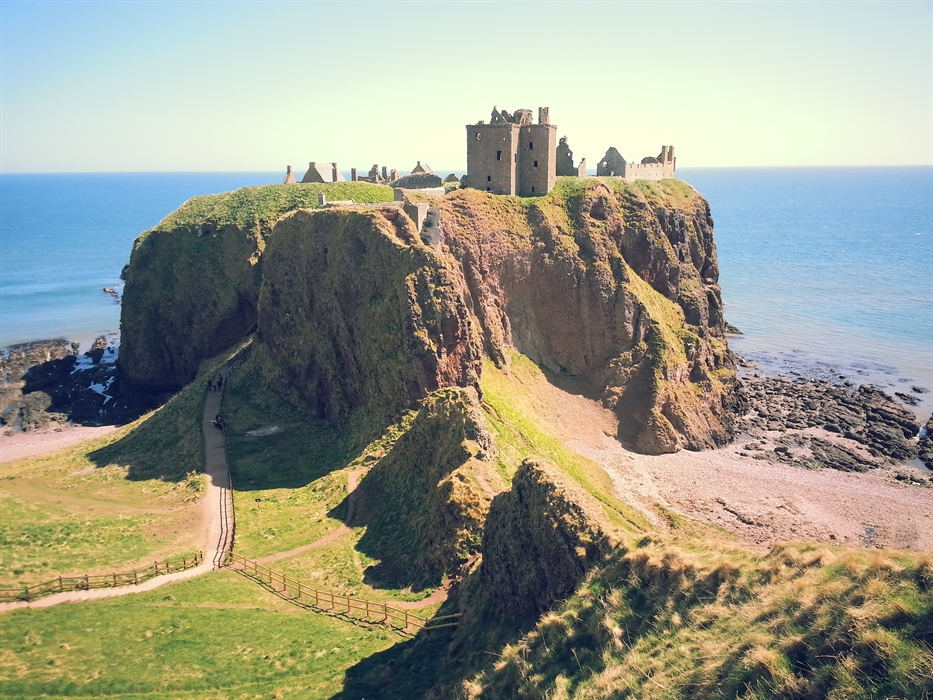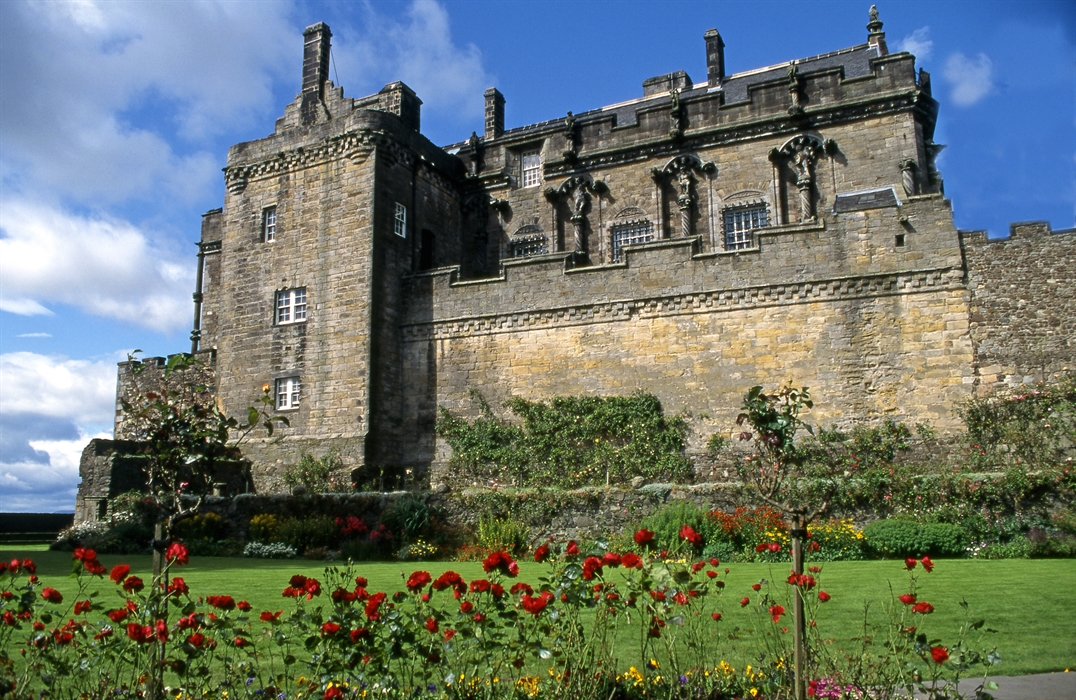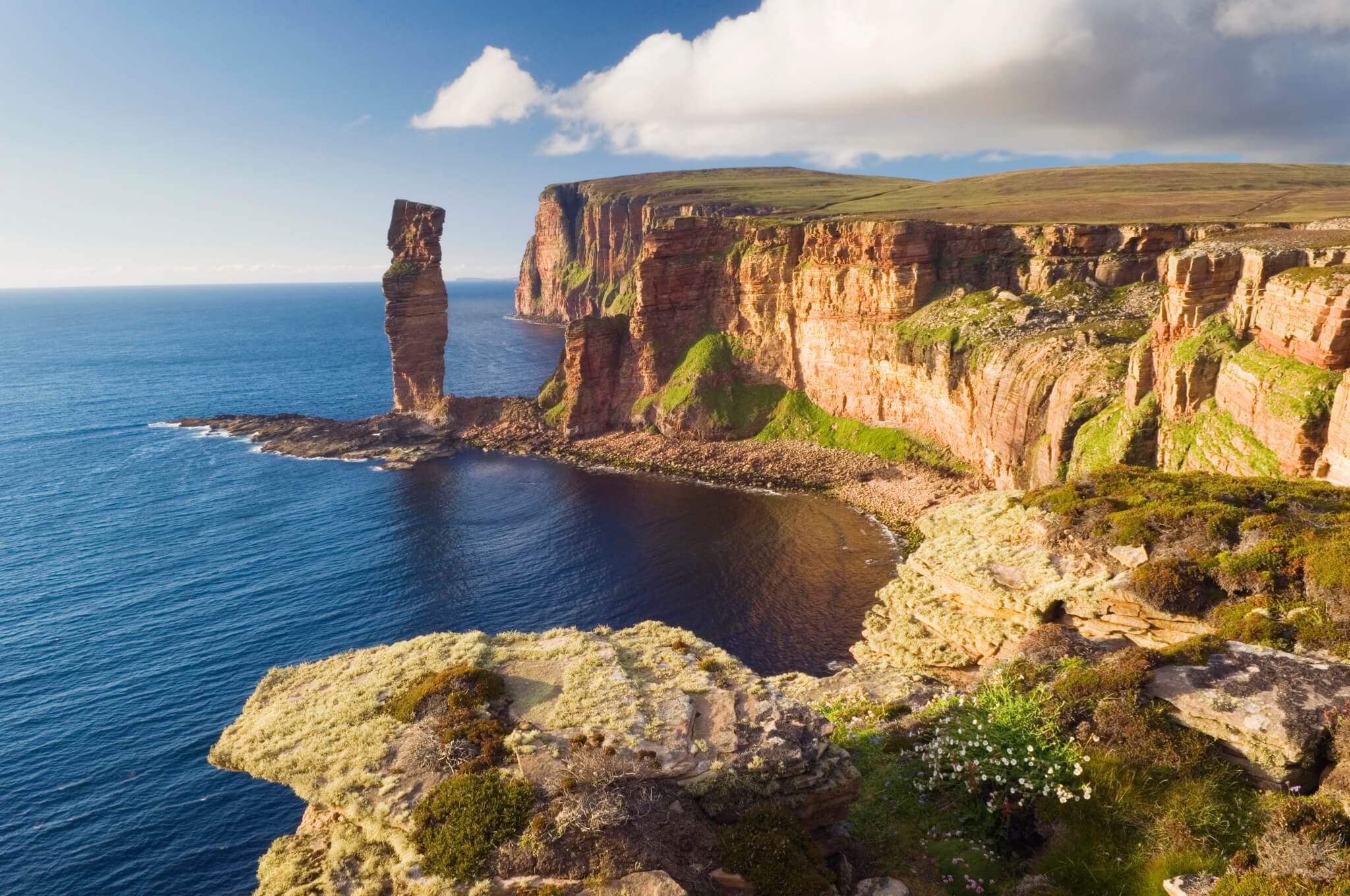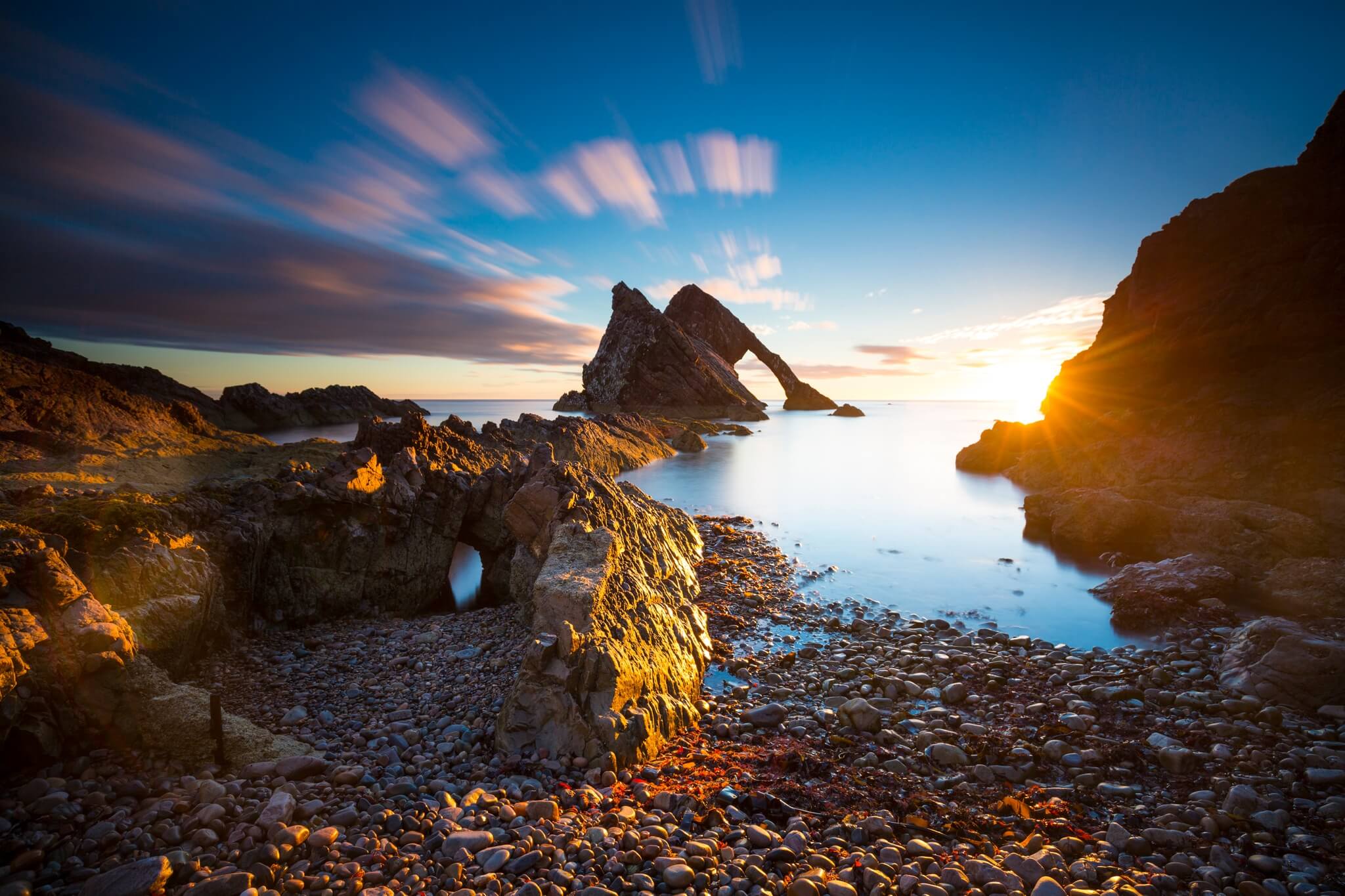- Home
- Things to do
- Attractions
- History & Heritage
- 7 Historic wonders in Scotland
7 Historic wonders in Scotland
Scotland has incredible historic attractions. Charming castles and grand ancient sites have been preserved for you to visit today. Even though they were built without the machinery and technology of modern times, they are nothing short of impressive. We’ve picked seven historic wonders in Scotland that should be on your must-see travel list.
- 1
Dunnottar Castle Stonehaven

Dunnottar Castle on top of cliffs
Of all Scotland's ruined coastal fortresses, Dunnottar Castle near Stonehaven in Aberdeenshire is one of the most spectacular. The sight of this well-preserved medieval stronghold will simply take your breath away.
This dramatic ruin holds many secrets from Scotland's colourful past. Originally it served as an ancient Pictish fortress, and the castle is also believed to be an early Christian site, founded by St Ninian in the fifth century.
It's been invaded by the Vikings, burnt, rebuilt, burnt again and besieged. William Wallace, Mary Queen of Scots and King Charles II have all graced the castle with their presence, but most notably the castle held out against the might of Cromwell's army in the 17th century and saved the Scottish Crown Jewels - the 'Honours of Scotland' - from destruction.
Dunnottar Castle has been the scene of many dramatic chapters in Scotland's history and is home to several ghosts.
Similar places: Eilean Donan Castle in Kyle of Lochalsh, Kilchurn Castle at Loch Awe
Key facilities- Parking
- On Public Transport Route
- Pets Welcome
- 2
Forth Bridge Edinburgh & The Lothians

The Flying Scotsman passes over the Forth Bridge towards South Queensferry
Not only is the Forth Bridge one of Scotland's major landmarks and an UNESCO World Heritage Site, it's also a world-beating example of industrial engineering.
Stretching 1.5 miles (2.4 km) over the Firth of Forth, the bridge was designed on the cantilever principle and its three towers rise to over 100 m (328 ft). Together with its younger siblings - the Forth Road Bridge and the Queensferry Crossing - the bridges transport thousands of travellers to and from the coasts of Edinburgh and Fife every day.
Whether it's the sheer scale, innovative workmanship or architectural and engineering prowess, this magnificent railway bridge continues to impress 21st century visitors as much as it did when it was first opened in 1890. It's a truly iconic sight - don't miss it.
Check out some of the top viewpoints from which to capture perfect pictures of the bridge, and see more iconic Scottish bridges.
Similar places: Skye Bridge on the Isle of Skye, Clyde Arc ('The Squinty Bridge') in Glasgow, and Tay Road Bridge in Dundee.
- 3
Dunfermline Palace & Abbey Dunfermline
Dunfermline Abbey and Palace
Founded by Queen Margaret as a priory in the 11th century, and later elevated to abbey status by King David I in the 12th century, Dunfermline Palace and Abbey are striking examples of Romanesque architecture.
The site is also a royal mausoleum. Some of Scotland's greatest medieval monarchs were laid to rest here, including King Robert the Bruce - notably minus his heart which is resting at Melrose Abbey - and seven other Scottish kings.
Set in the burgh of Dunfermline in Fife, substantial remains of the church, domestic buildings and palace still stand. The building had wide mullioned windows, elaborate vaulting and a sumptuous interior. You can admire its hugely impressive nave or go up a level and take in the breathtaking views across the glen from the palace windows.
Similar places: Arbroath Abbey in Arbroath, and the Borders Abbeys in Melrose, Kelso, Jedburgh and Dryburgh.
- 4
The Lewis Chessmen Isle of Lewis
The Lewis Chessmen in Lews Castle Museum, Isle of Lewis
© VisitScotland / Kenny Lam
The Lewis Chessmen were discovered in 1831, buried inside a small stone kist in a sand dune near Uig on the Isle of Lewis in the Outer Hebrides.
These Medieval chess pieces date back to the late 12th or early 13th century and are a characterful reminder of the strong historic ties between parts of modern-day Scotland and Norway. They arrived in the Outer Hebrides at a time when travelling by sea was the only option for merchants and others wishing to interact with the islanders.
The pieces are in very good condition, so it's likely they were traders' stock, rather than being in use. It's thought they were either lost on a journey from Norway to Ireland or were buried for safekeeping by somebody who was hoping to collect them at a later date.
Measuring between 3.5 cm and 10.2 cm in height, most of the chessmen are carved from walrus tusk, but a few are made from a whale's tooth.
Similar objects: The Miniature Coffins of Arthur's Seat on display in the National Museum of Scotland; the hoard of St Ninian's Isle treasure also on display in the National Museum of Scotland.
- 5
Stirling Castle Stirling

Stirling Castle
Stirling Castle was once a favoured residence of the Stewart kings and queens who held grand celebrations at the castle, including christenings and coronations, but that's not the real reason why we've included it on this list.
Sitting atop Castle Hill in Stirling, and with its superb sculptures and beautiful gardens, this castle is one of the finest examples of Renaissance architecture in Europe.
It has remained practically the same since King James V had it built for his French queen in the mid 16th century. He wanted her to feel at home, so he built her this beautiful French-style Renaissance palace. The meticulously restored Royal Palace, with its immense Great Hall - the largest medieval banqueting hall ever built in Scotland - magnificent views of King's Knot and Royal Park and the peaceful Queen Anne Garden, make it a historic wonder and a joy to explore.
Kids will love dressing up as knights and princesses and meeting costumed courtiers, bodyguards and servants.
Similar sites: Dunrobin Castle in Golspie, Culzean Castle in Maybole, and Edinburgh Castle
Key facilities- Parking
- On Public Transport Route
- Hearing Loop
- Accessible Parking Or Drop-off Point
- Level Access
- Accessible toilets
- Cafe or Restaurant
- 6
Skara Brae Stromness, Orkney
Skara brae, part of the heart of neolithic orkney world heritage site
There aren't many places where you can step back over 5,000 years in history. Skara Brae is one of Scotland's most ancient sites, dating back to the Neolithic period, which makes it older than Stonehenge and the pyramids in Egypt! It's the most complete Neolithic village in Europe, making it a UNESCO World Heritage Site and the 'Scottish Pompeii'.
Skara Brae was first discovered following a huge storm in 1850, revealing a remarkably well-preserved village located in Stromness in the Orkney islands. It sits in the Bay of Skaill and is surrounded by dramatic seascapes, wildflowers and plenty of birdlife to enjoy. Visitors can wander around the ancient ruins of ten clustered houses and imagine what life was like for the hunters, fishermen and farmers who lived there.
Similar places: Broch of Gurness and Maeshowe Chambered Cairn in Orkney.
Key facilities- Parking
- On Public Transport Route
- Accessible Parking Or Drop-off Point
- Hearing Loop
- Cafe or Restaurant
- 7
Calanais Standing Stones Isle of Lewis
The Callanish Standing Stones
© VisitScotland / Kenny Lam
Believed to have been erected around 2900 BC, the world-famous Calanais Standing Stones in the Outer Hebrides form one of the most complete stone circles in Britain and Europe.
Recognised as a geosite by the Royal Geological Society, the stones are a fascinating remnant of an ancient civilisation. This imposing stone circle stands in Calanais on the west side of the Isle of Lewis and has remained on this site for thousands of years, surviving all weathers.
The site is shrouded in mystery today. Why are the stones there, and what were they used for? According to Hebridean folklore, these monoliths were once giants who refused to be converted to Christianity by Saint Kieran and were turned into stone as punishment.
Nothing quite sums up the mystical feeling you'll experience at this site - its ageless mystery, impressive scale and undeniable beauty leaves a lasting impression.
Similar places: Ring of Brodgar in Stenness, Kilmartin Glen in Argyll, and Clava Cairns near Culloden Moor.
Please note, the visitor centre is currently closed until 2026 with no facilities or parking measures available to the public.
Find experiences
JavaScript needs to be enabled to see this product search form. You can turn this on in your browser settings.
Other things you might like

Scotland's UNESCO Trail
Standing stones
Historic attractions in Scotland

6 Scenic natural wonders

13 Iconic Scottish views
1 of 5
Join our newsletter clan
Get Scotland inspiration direct to your inbox. Don't miss the inside track from our Scotland experts on exciting trip ideas, unique attractions and hidden gems loved by locals.
